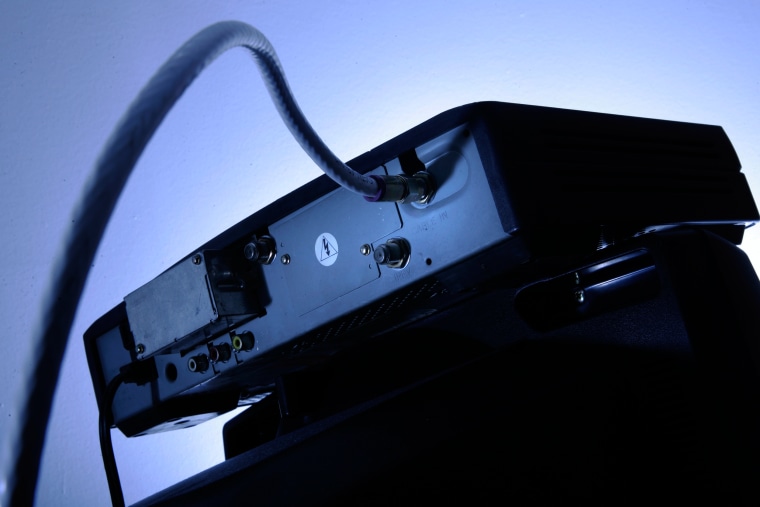WASHINGTON - The Federal Communications Commission on Wednesday proposed competition in the pay television set-top box market, a move that could let consumers swap costly cable industry boxes for cheaper service through devices like tablets.

FCC Chairman Tom Wheeler unveiled the proposed regulation to let customers get video services from providers like Alphabet Inc., Tivo and Apple instead of cable, satellite and other television providers like Comcast , Verizon and Dish, according to the proposal, which will be voted on Feb. 18. (Comcast owns NBC Universal, which is the parent company of NBC News.)
The FCC says Americans spent $20 billion a year to lease pay-TV boxes, or an average of $231 a year. The summary said set-top box rental fees have jumped 185 percent since 1994, while the cost of TVs, computers and mobile phones have dropped by 90 percent.
A coalition of existing pay-TV providers oppose competition in the set-top box market and on Wednesday said the proposed regulation would not provide new programming to customers or lower their television bills.
The FCC said consumers should be allowed to get cable, satellite or other pay-TV through an app or through devices like a smart TV or tablet instead of only a set-top box.
"The only change the FCC is proposing is to allow consumers alternative means of accessing the content they pay for," the summary says.
Cable and Satellite TV Costs Will Climb Again in 2016
Wheeler compared set-top boxes to Americans being forced to rent rotary dial telephones for decades.
"The FCC unlocked competition and empowered consumers with a simple but powerful rule - consumers could connect the telephones and modems of their choice to the telephone network," Wheeler said in an op-ed on the tech site Re/Code.
In 2007, the FCC opened wireless networks to non-carrier-provided devices.
The FCC's goal is to allow consumers to have a user friendly interface that integrates "pay TV and streaming content on one device."
No 'Bundle' of Joy: Cost of TV, Internet and Phone Service Rising
In November, a group of eight Democratic senators, including presidential candidate Bernie Sanders, Elizabeth Warren, Al Franken, Cory Booker and Ed Markey, wrote to the FCC urging opening the set-top boxes to competition.
"The FCC is finally on its way to fulfilling the promise to American consumers of a competitive and robust video box market," Markey said Wednesday, praising the "proposal to help ensure that consumers are not captive to bloated rental fees forever."
The FCC said a competitive marketplace is required by a 1996 law. Set-top boxes should be open to pay-TV rivals using formats that conform "to specifications set by an independent, open standards body," the FCC said.